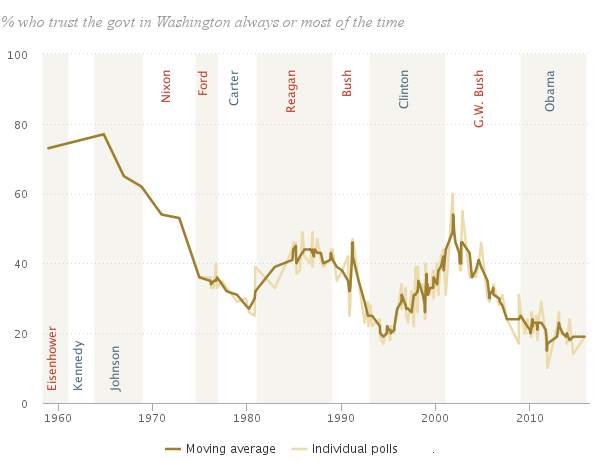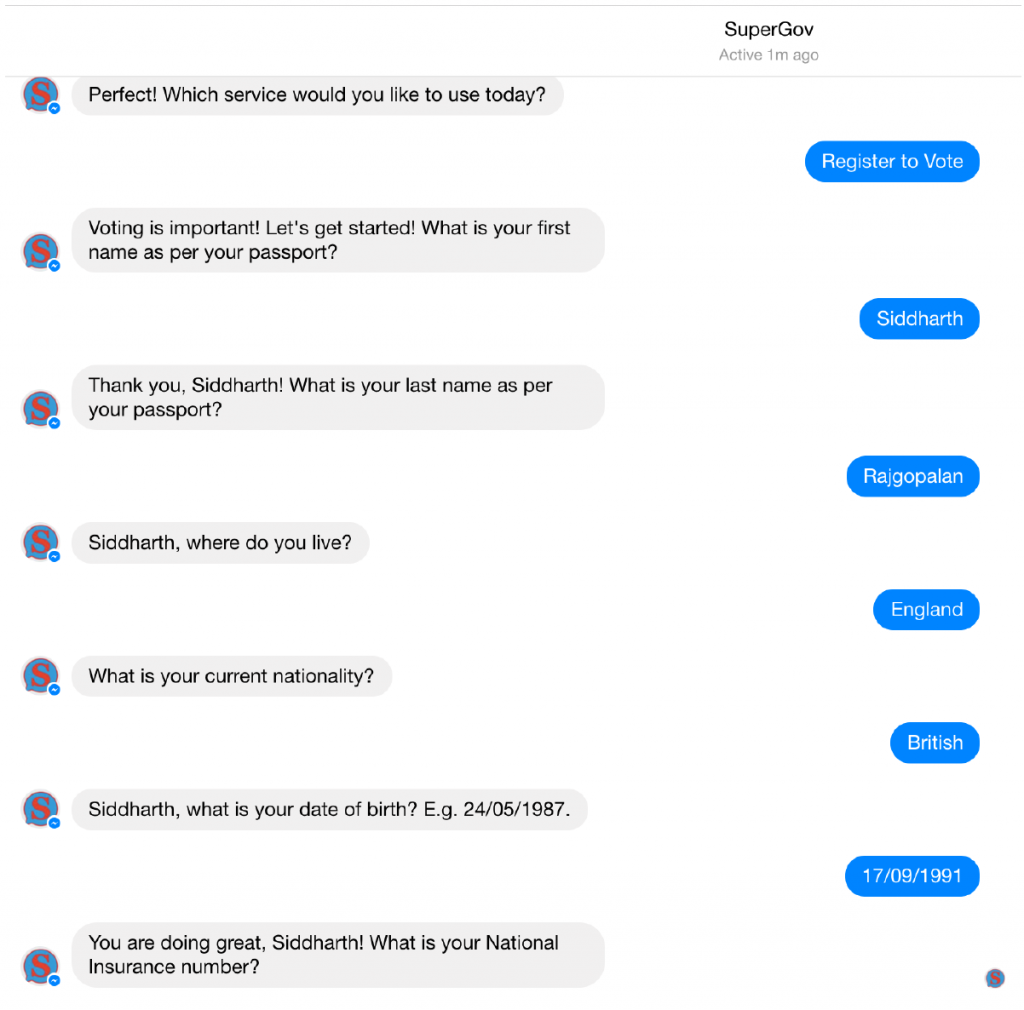This blog post summarises a submission by a group of our LSE MPA students for this year’s GPPN conference which took place in February 2017. This group’s submission aims to address the trust gap between citizens and their governments and proposes a solution.
The Problem
Confidence in national governments across OECD countries had decreased to an all-time low of 40% in 2014. Trust in parliaments among the same sample nowhere surpasses 45%. As for Americans, the trust they carry for their government has fallen from approximately 75% to 20% in the past twenty years.

This substantial mistrust between governments and citizens is arguably explained by a lack of effective communication between governments and citizens. Governments are often criticised for their incapacity to provide viable and long-term solutions to citizens’ needs. Likewise, citizens have no clear understanding of what governments accomplish.
The essence of the issue at hand can be represented as 3 distinct problems:
- Inefficient use of public services, due to difficult access or inconvenient processes;
- A lack of transparency and accountability vis-à-vis public institutions;
- Inadequate participatory platforms, which would allow shared governance, the building of strong community networks, in turn fostering trust among citizens themselves.
The Solution
Our proposed solution is SuperGov, an artificially intelligent friend that connects citizens to their governments. SuperGov will be available on the platforms that citizens use for their everyday communication, like SMS, and increasingly Facebook Messenger and WhatsApp.
SuperGov connects with the massive datasets available to governments and presents them as interactive options to citizens – as existing public services or as answers to queries from citizens. The advent of big data, cheap computing power and advanced machine learning algorithms make this a reality. The citizen doesn’t need to search on the internet or get frustrated dealing with websites, emails, and calls – SuperGov does it for them. More importantly, it caters its responses and personalises it, removing all the irrelevant noise and redundant form filling. As it’s connected to social media, it makes it easy to for citizens to get involved through petitions, complaints and share this information with friends. It’s a simple, one-stop platform for citizens to communicate with their government, use public services and get involved in their local community.
SuperGov is available as a prototype on Facebook! Visit the page and drop a message to SuperGov to see how these interactions could possibly look like. As it’s a prototype, only a limited number of messages are allowed on the hosting platform per month, so we apologise if it doesn’t respond!
https://www.facebook.com/thesupergov/

The Benefits
On the government side, public savings would abound. According to the Cabinet Office, the UK government saved £1.7 billion through digital and technology transformation in 2015 alone, and £3.56 billion in the 2012-2015 period. Individuals’ interactions with governmental agencies through digital services are twenty times cheaper than a phone call, and fifty times cheaper than face-to-face meetings. SuperGov would increase the number of users of these digital services by bringing it to them through the communication platforms they use every day and thereby reducing barriers of access in a convenient way.
The outcomes of such innovative reforms are manifold: the use of artificial intelligence would see increasing returns to scale by needing less human effort for the answering and processing of public services. Additionally, the generation of data from citizens would allow for precise allocation of public services through big data analytics or direct reporting from citizens; and, perhaps more importantly, a better understanding of what citizens actually need and expect from their governments. From a more overarching perspective, digitalisation enables the building of stronger community networks and strengthens the trust in public institutions, issues that appear to be at the heart of many citizens’ true concerns in today’s environment.
Get Involved
We will be developing a more advanced working prototype of SuperGov over the summer. If you have ideas for SuperGov share your thoughts by dropping an email to s.rajgopalan@lse.ac.uk
You could also just share your ideas by messaging SuperGov directly. 🙂
Théo Bougery, Hélène Procoudine-Gorsky and Siddharth Rajgopalan are first year MPA students and members of the Class of 2018.





